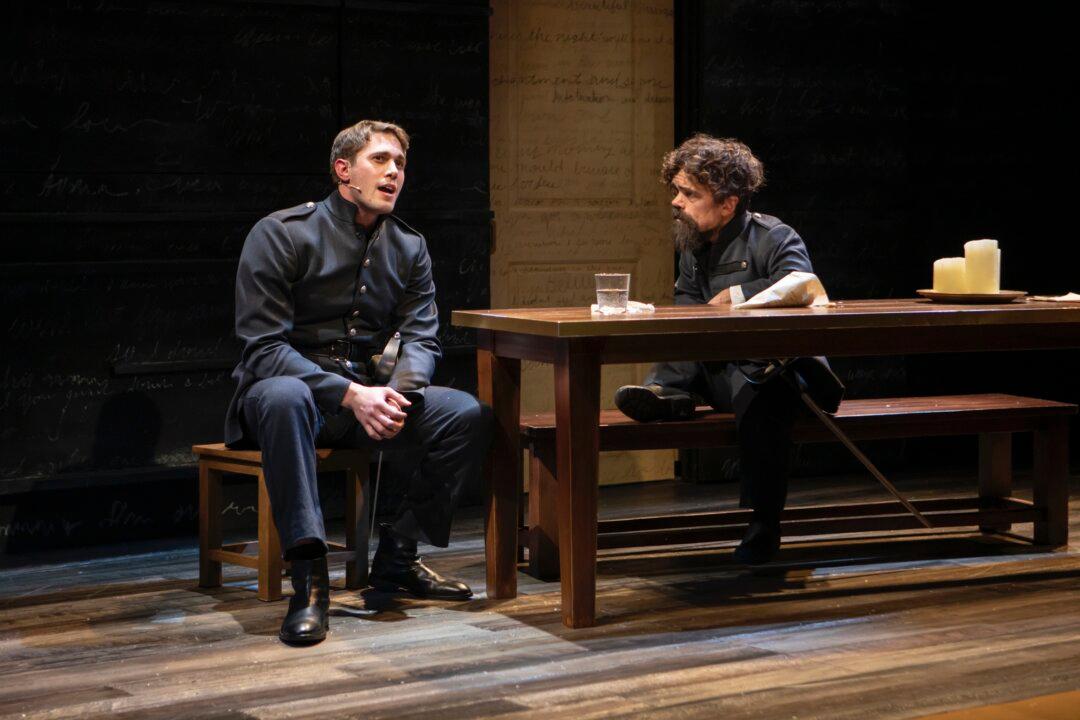NEW YORK—When the character of Roxanne (Jasmine Cephas Jones) bursts into song in the opening moments of the musical “Cyrano,” something magical happens: A woman shares her hidden hopes and dreams. Here, the music and lyrics in this New Group production are perfectly in sync with the story. Sadly, such emotional highs are far too infrequent but do show the potential of Erica Schmidt’s adaptation of Edmond Rostand’s classic work “Cyrano de Bergerac.”
In 1640, Cyrano (Peter Dinklage) is a much respected swordsman in the king’s regiment. He’s also a poet, critic, and a man with a rapier wit. He once interrupted an actor on stage because he felt the performer was not up to the role.





